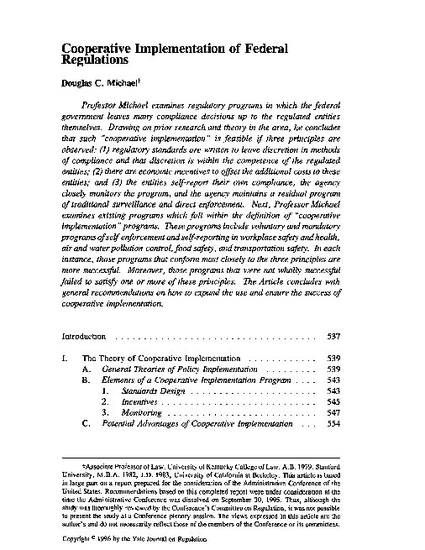
Professor Michael examines regulatory programs in which the federal government leaves many compliance decisions up to the regulated entities themselves. Drawing on prior research and theory in the area, he concludes that such "cooperative implementation" is feasible if three principles are observed: (1) regulatory standards are written to leave discretion in methods of compliance and that discretion is within the competence of the regulated entities; (2) there are economic incentives to offset the additional costs to these entities; and (3) the entities self-report their own compliance, the agency closely monitors the program, and the agency maintains a residual program of traditional surveillance and direct enforcement. Next, Professor Michael examines existing programs which fall within the definition of "cooperative implementation" programs. These programs include voluntary and mandatory programs of self-enforcement and self-reporting in workplace safety and health, air and water pollution control, food safety, and transportation safety. In each instance, those programs that conform most closely to the three principles are more successful. Moreover, those programs that were not wholly successful failed to satisfy one or more of these principles. The Article concludes with general recommendations on how to expand the use and ensure the success of cooperative implementation.

Yale Journal on Regulation, Vol. 13, No. 2 (Summer 1996), pp. 535-601